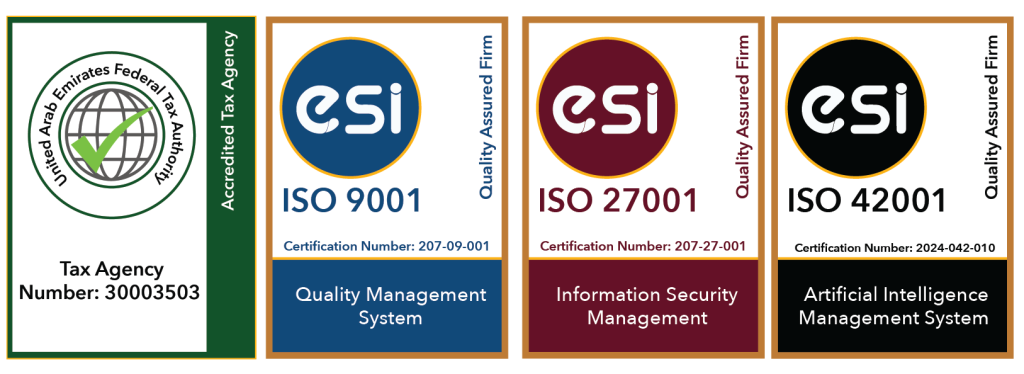Many SMEs, especially those who are just starting a business, often overlook the management of cash coming in and out of their business. It is a common error thinking that if money is coming in, the business is performing and will have sufficient resources to pay for its purchases and expenses.
Cash is key to the survival of your business and ignoring the needs for an accurate cashflow management process can lead to shocks that could cripple your business.
Just consider a cash crunch to your business, what you may need to manage to address it and how much resources will be consumed that will distract you?
Key to understanding your business’s ability to managing cashflow is asking a few basic questions:
- Do you know when you will receive cash?
- Have you considered payment delays?
- Do you know when you will need to settle expenses?
- What impact could a delay in payment imply to your credit worthiness?
- Are you forecasting your monthly net cash requirements?
- If you foresee issues, how will you management cash requirements?
What does a company need to know and do in order to properly manage their cash?
What is Cashflow?
The way you manage and understand your company’s cashflow plays a vital role in your business. “Cashflow is the lifeblood of the Business”.
A business entity has its own system and specific functions as to that of a human body, cashflow works like the blood pumping in and out of the heart which is essential for the body’s survival.
For many businesses, cash is generated through sales of its goods and services and consumed for purchases and expenses related to producing goods and services and maintaining its operational processes.
Ensuring you have enough cash is the key, too much cash is wasting key resources that could generate value while the opposite has a greater detrimental effect.
1. Improving Your Cashflow.
Knowing when and how much cash will be received is necessary to help your company properly schedule payments to its employees’, suppliers and creditors while maintaining an optimal positive cashflow.
For example, a company with a total cash of $1,000,000.00 coming in each month, should not have monthly expenses equal or worst, having more than the company’s available cash.
The ideal scenario is when cash balance is more than that of the company’s expenses. Keep in mind that having too much cash is also not considered healthy.
This may result to lost opportunities, therefore it is imperative to be cautious on how to plan and maintain a healthy cash flow.
Here are some ways of managing and improving the Company’s cashflow.
2. Payment Terms
The Company must pay attention and should bargain well to its customers and suppliers when setting up payment terms. Getting payments from customers as early as possible are preferable. But with the suppliers, it is the opposite.
The company should, if possible, get the best payment terms with its suppliers. Getting more time to pay, especially for bigger amounts, will allow the company to raise cash before the due dates.
In addition, it will allow the company to use its available cash to use it for other activities that could generate more profit for the company.
3. Priorities
Company must be aware of all expenses relevant to its operation. This will help avoid unnecessary cost to the company.
For example, for a catering company that has a catering event for 500 guests; building up inventory for 1,000 guests is not efficient. Doing such will lead to unnecessary working capital impacts ultimately affecting profitability.
4. Taxes
Having a good knowledge of the law will help the company allocate and schedule its tax obligations and avoid penalties and interest.
Tax payments can be a large liability that should be accounted for and issues with the Tax Authority can place additional personal risk on the business owners, in addition to accruing punitive penalties.
5. Maintaining Cash Reserves
Companies must always provision for periods where sales are low, accounts receivable are increasing, and should be ready for it. Payables and expenses will still be needed to be paid regardless if the company is experiencing low sales or cash collection from its customers.
This is where the cash reserve comes in handy. Again, it is important for the business owner and accountant to determine what is the healthy level of cash in reserve.
6. Plan and Report on Cash
All too often business owners rely on bank/cash balances and accounts receivables to gain a sense of comfort on cashflow requirements. This is a misplaced idea and is a source of future problems especially if a few large payments are delayed or expenses come unpredictably.
Your business must carefully plan its cash and account for downside risks to mitigate issues. Ideally your cashflow should be systematically maintained in some reporting platform.
Platform based reporting requires greater accuracy in data entry which in turn will provide more reliability to your reporting.
Summary
Operating sound cashflow management and reporting process may be a defining factor to your business’s success.
Research has shown 24% of companies fail for this single reason in the first 2 years of operations. Placing emphasis on this area and implementing a reliable model is not an onerous task.
With the right approach, expertise, and with our best practice and insight, we could help solve your cash reporting challenges with minimal interruptions.
Accounting & Tax Services
As an approved FTA Tax Agency, SimplySolved supports businesses under advisory or complete outsource basis to optimise, manage and discharge tax obligation in the UAE. Our experts possess in-depth knowledge of the UAE tax regulations and can guide you through the intricacies of the UAE Corporate Tax Law.
By leveraging our expertise, you can streamline the process, saving time and minimizing the risk of errors. This proactive approach ensures that your Tax matter are handled efficiently, allowing you to focus on your core business activities.
Simply Solved is an ISO 9001 & 27001 certified company and a registered FTA Tax Agency. Our team of experienced consultants and tax agents provides high-quality, cost-effective services for all Tax matters for companies of all sizes.





